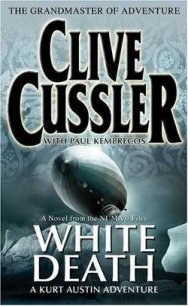The Whispering Land - Durrell Gerald (читать книги .TXT) 📗
maypole – a high pole decorated with ribbons, flowers, etc., set up in the open for dancing round on May day, the first of May, celebrated in England as a spring festival belly-splitting charge – the leap taken by the old bull in charging the young one, which ended in his hurting his belly (note the author's device of alluding ironically to current idiomatic expressions, here to side-splitting laughter or ear-splitting noise)
bulbous – shaped like a bulb, an enlarged, spherical termination of stem in certain plants, such as the onion, tulip or lily
cul-de-sac ['kulde'saek] (Fr.) – a passage or street with an opening at one end only, from which there is no escape tinamu (or tinamou) [ti'na:mu:] – a South American bird resembling a quail (a game bird of America, Europe, Asia and Africa, also called partridge)
Darwin's rhea – a South American three-toed ostrich
school crocodile – a long line of schoolchildren walking by twos to pace, v. t. – to set the pace for another rider or runner in a race bonnet – the hood protecting the engine of a motor-car
windfall – an unexpected piece of good fortune (literally, something blown down by the wind, especially fruit) -
sea-front (or water-front) – a street or a part of town facing the sea; Bournemouth – a popular English seaside resort
Tierra del Fuego (Sp.) - "Land of Fire", a group of islands separated from the south end of South America by the Strait of Magellan. Its farthest point is Cape Horn.
The verb to fret is used here in its special, architectural meaning: 'to decorate with pattern carved in relief.' The author means that the stones were irregular in shape, but irregular artistically.
with a jaundiced eye – here suspiciously, with some irritation (from the noun jaundice, a disease accompanied by yellowness of the skin and of the whites of the eyes; figuratively, a stale of mind in which one is spiteful, irritable or suspicious)
to make the best of a disaster – to try and got along as best one can, in spite of a disastrous state of things trippers (from trip 'a short journey') – people on an excursion; the word is often used contemptuously (e. g. "at week-ends the beach is crowded with noisy trippers")
abandon, n. - careless freedom
Turkish bath – here a building where Turkish baths are taken. A Turkish bath is a hot air or steam bath followed by soaping, washing, rubbing, kneading, massaging, etc. Added to the dropsy and the quiet concentration of chess players, the atmosphere of a Turkish bath helps to convey the impression of complete inactivity and sleepiness.
the Leaning Tower of Pisa ['pi:ze] – one of the famous sights in Italy: the white marble bell-tower, 178 feet in height, which leans 14 feet off the perpendicular the Acropolis – the citadel of Athens, Greece, situated on a hill about 250 feet high and richly adorned with architecture and sculpture (especially in the 5th century B. C.)
barrage balloon – one of a series of balloons used to form a barrier against enemy planes stop-watch – a watch with a hand that can be stopped or started by pressing a knob on the rim; a stop-watch is used for timing a race, etc.
rather him than me – I wouldn't do it; let him, if he likes
there was quite a colour variation – there was a considerable variation in color (note the current colloquial construction with quite a)
algae (sing. alga) – the Latin name of a large group of lowly organized plants, including the seaweeds and similar weeds found in stagnant or slow-flowing fresh water to take to the air – to go suddenly up into the air to show oneself to advantage – to allow to see one at one's best, in such a way as to bring out one's strong points
the animation of a group of opium smokers – no animation at all (opium smoking has the effect of reducing the smokers to a state of insensibility); cf. the Turkish bath simile on p, 75
concertina -a musical instrument with hollows, resembling a small accordion morale – the mental state or condition of a body of men, especially of an army; the word is generally used in the meaning of 'high morale', i.e. courageous, determined conduct despite danger and privations gargantuan – enormous, gigantic (from the name of Gargantua, a giant in Rabelais’ book Gargantua and Pantagruel)
the final straw – the last straw, the final circumstance that makes the situation unbearable (the allusion is to the proverb ("lt is the last straw that breaks the camel's back")
maggots – the larvae of a cheese-fly (or cheese-mite), a small mite infesting cheese twilit, a. - dimly illuminated, as by twilight
to rev up – to cause the engine to run quickly when first starting (the word was first used as a colloquial abbreviation of revolve)
Jujuy [d3u:'d3ai] – the northernmost province of Argentina, with a capital of the same name
Sophie – the author's secretary to minister unto (or to) – to give aid or service; to look after to make tracks for a certain place (colloq.) - to go directly towards it precious (colloq.) - very (cf. pretty in a similar use)
lassoo ['laesu:] – variant of lasso, a long noosed rope of un-tanned hide for catching cattle, etc.
pernicious anaemia – lack of blood, unhealthy paleness. This introduction of a medical term into an elaborate paraphrase describing the faint electric light is highly typical of Durrell’s verbal humour: he likes to spice his descriptions with scientific-sounding words.
buenas noches (Sp.) - good evening she twitched and mumbled her way into sleep – she twitched and mumbled until she fell asleep; she fell asleep twitching and mumbling
all twenty stone of her – the whole of her enormous person (the author estimates the woman's weight at about 20 stone, or 127 kg: see also note to p. 19)
Here we find an interplay of the two meanings of the verb crown: the hat actually crowned the woman's head, and the expression to crown this means 'to give a finishing touch to the whole'.



